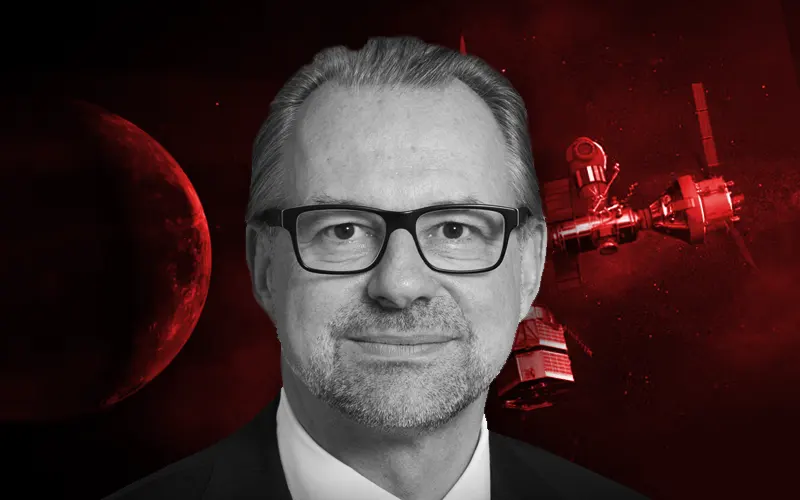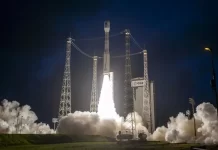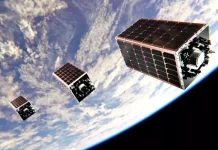
The European Space Agency’s Director General, Josef Aschbacher, has responded to proposed NASA budget cuts that would eliminate the Orion and Gateway programmes, both of which involve ESA contributions.
Late last week, the Trump Administration released a proposed “skinny” budget for fiscal year 2026. While the full budget is not expected until late May, this initial glimpse at the White House’s spending plans includes a nearly 25% cut to NASA’s budget. It also outlines the cancellation of both the Orion crew vehicle after the Artemis 3 mission and the proposed lunar Gateway space station programme. However, this remains a proposed budget and must still pass several hurdles in the U.S. Senate before it can be enacted.
As part of an agreement struck in 2012, the European Space Agency (ESA) has developed and is building the service modules for the Orion crew vehicle, which is intended to carry astronauts to the Moon for the first time since the conclusion of the Apollo programme in 1972. To date, ESA and NASA have agreed to build a total of six service modules, to be delivered under a barter agreement.
The delivery of the first three service modules offsets ESA’s share of International Space Station common system operating costs. The first of the three was launched aboard the Artemis 1 mission in late 2022. The second was delivered to NASA in October 2021, and the third in August 2024. ESM-2 will carry astronauts on a trip to lunar orbit and back, while ESM-3 is slated to carry the next man and the first woman to set foot on the surface of the Moon.
In February 2021, ESA awarded a €650 million contract to Airbus Defence and Space for the manufacture of three additional service modules. According to reporting at the time, one of the three would also be used to offset ESA’s ISS contributions. The other two, together with ESA’s contributions to the Gateway space station programme, were to be used to barter for three guaranteed seats aboard Artemis missions to the Moon for European astronauts. The first two seats were confirmed for Artemis 4 and 5, while the third remains unassigned. ESA has been negotiating with NASA to ensure that the third seat will result in a European astronaut setting foot on the Moon for the first time.
With the White House cancelling Orion after Artemis 3, ESA’s contribution to ISS operations appears to be mostly secured through to the station’s decommissioning in 2030. However, with ESM-4 to 6 now likely to go unused and Gateway being shelved, any chance of a European astronaut joining a crewed mission to the Moon seems to have vanished.
On 5 May, Director General Josef Aschbacher published a response to the proposed NASA budget cuts. In the statement, Aschbacher explained that follow-up meetings with NASA officials are already taking place to assess the full impact of the White House’s decision to terminate the Orion crew vehicle programme and shelve the Gateway space station programme. Any initial decisions about the best way forward, he added, will be made when the ESA Council meets in June.
“At ESA’s June Council, based on further developments, there will be an assessment with our Member States of potential actions and alternative scenarios for impacted ESA programmes and related European industry,” explained Aschbacher. “Later in the year, ESA will hold its Council at Ministerial level and is determined to raise Europe’s potential in space for the ultimate benefit of Europe, ESA’s Member States and their citizens.”
In addition to outlining the path forward, the statement noted that while ESA’s partnership with NASA is long-standing and a highly visible example of international cooperation, the agency has also forged strong ties with space agencies around the world. In a subtle rebuke, Aschbacher added that ESA remains committed to being a “reliable partner.”





And the impact on the UK’s Rosalind Franklin mission will need to be worked through, as well as the recently awarded contract for its lander to Airbus. Is this an option to look further afield to space collaboration for Europe? China? As a mature G7 nation we should be able to compete, collaborate and contest simultaneously to ensure we can guarantee security, stability and prosperity.